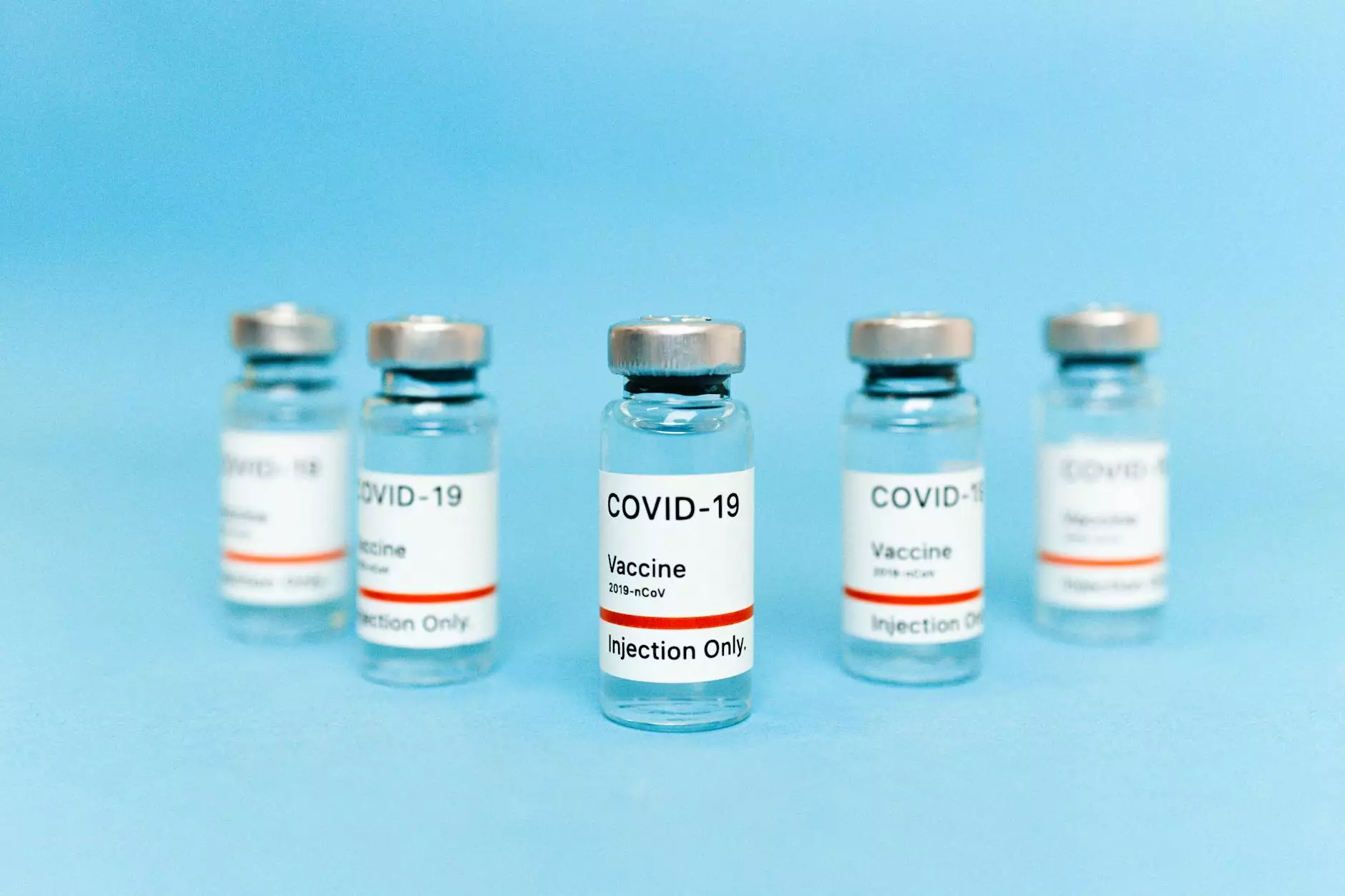Comprehensive Guide: Which is Better Semaglutide or Ozempic for Diabetes and Weight Loss?

In the rapidly evolving world of healthcare and pharmaceutical treatments, particularly in the domains of diabetes management and weight loss, two medications frequently come into discussion: Semaglutide and Ozempic. Both drugs are garnering significant attention not only due to their effectiveness but also because of their innovative mechanisms of action, safety profile, and diverse applications. This comprehensive guide aims to thoroughly analyze which is better Semaglutide or Ozempic, providing detailed insights into their efficacy, usage, benefits, and considerations for patients and healthcare providers alike.
Understanding Semaglutide and Ozempic: An Overview
What is Semaglutide?
Semaglutide is a potent glucagon-like peptide-1 (GLP-1) receptor agonist developed by Novo Nordisk. Originally approved for the treatment of type 2 diabetes, it has also gained prominence as a weight-loss medication. Semaglutide works by mimicking the effects of incretin hormones, which stimulate insulin secretion, inhibit glucagon release, and slow gastric emptying. This dual action leads to improved blood sugar control and reduced appetite, contributing to weight loss.
What is Ozempic?
Ozempic is a brand name for a synthetic GLP-1 receptor agonist, also produced by Novo Nordisk. It contains the active ingredient semaglutide but is marketed specifically for the management of type 2 diabetes. Ozempic is administered via weekly subcutaneous injections and has been shown to significantly improve glycemic control and promote weight reduction. Its popularity has surged due to its effectiveness and convenience in weekly dosing.
Mechanisms of Action: How Both Medications Function
Both Semaglutide and Ozempic operate primarily by activating GLP-1 receptors, which results in multiple beneficial effects:
- Enhancement of insulin secretion in response to high blood glucose levels
- Suppression of glucagon release, thereby reducing hepatic glucose production
- Delayed gastric emptying to promote satiety and reduce food intake
- Appetite suppression, leading to decreased weight and improved metabolic profile
While both medications share this mechanism, their pharmacokinetics, dosing, and additional properties may differ, impacting their suitability for individual patients.
Comparative Effectiveness: Which is Better Semaglutide or Ozempic?
Clinical Efficacy in Blood Glucose Control
Extensive clinical trials demonstrate that semaglutide generally exhibits superior efficacy in reducing HbA1c levels compared to many other GLP-1 receptor agonists. For instance, in the STEP trial series focusing on weight management, semaglutide showed reductions in HbA1c often exceeding 1.5%, with some patients achieving near-normal levels.
Ozempic, while highly effective in glycemic management, tends to produce slightly lower HbA1c reductions compared to semaglutide in comparable trials, though still clinically significant. The choice often depends on individual blood sugar targets and tolerability.
Weight Loss Benefits
The weight loss capabilities of semaglutide surpass many other drugs, with a significant proportion of patients experiencing weight reductions of 10% or more of their body weight in clinical studies. The STEP trials have set a new standard, indicating that semaglutide is among the most effective pharmacological options for weight management today.
Ozempic also promotes weight loss, generally around 5-10% of body weight, which is considered beneficial, especially for patients with obesity and type 2 diabetes. However, for maximum weight reduction, semaglutide's higher dosing regimens and potency give it an edge.
Cardiovascular and Other Benefits
Both medications offer benefits in reducing cardiovascular risk factors, such as lowering blood pressure and improving lipid profiles. Semaglutide's effectiveness has been confirmed in dedicated cardiovascular outcome trials, like SUSTAIN-6, demonstrating a reduction in major adverse cardiovascular events (MACE). Ozempic also shows similar benefits but with slightly less data compared to semaglutide at higher doses.
Safety and Side Effect Profiles
Common Side Effects
Both drugs tend to produce similar adverse effects, primarily gastrointestinal, including nausea, vomiting, diarrhea, and constipation. These effects are typically mild to moderate and tend to decrease over time.
Serious Risks and Considerations
- Pancreatitis: Rare cases have been reported, necessitating vigilance.
- Thyroid C-cell tumors: Preclinical studies indicated potential risk; thus, contraindicated in patients with a personal or family history of medullary thyroid carcinoma.
- Gastrointestinal issues: Important to manage with dose titration.
- Other considerations: Such as possible medication interactions and patient-specific contraindications, should be discussed with healthcare providers.
Which is Better Semaglutide or Ozempic for Different Patient Needs?
Patients Focused on Significant Weight Loss
For patients seeking maximum weight reduction, semaglutide, especially at higher doses (like Wegovy, a higher-dose formulation), provides superior outcomes. Its robust appetite suppression makes it ideal for obesity treatment combined with diabetes management.
Patients Primarily Managing Blood Glucose
Both medications effectively improve glycemic control, but Ozempic is often preferred for routine diabetes management due to its proven track record, dosing convenience, and extensive clinical data.
Cost and Accessibility Considerations
Cost varies depending on formulation, dosage, and Region. Generally, Ozempic is more widely available, and insurance coverage may be more accessible for this brand name. However, with the increasing popularity of semaglutide for weight loss, some patients may have better access to higher-dose formulations or insurance plans covering off-label use.
The Choosing Factors: How to Decide Which Medication is Better for You
Deciding between semaglutide and Ozempic involves considering several factors:
- Primary treatment goal: Is the focus on blood sugar control or weight loss?
- Patient tolerability: How well does the patient tolerate gastrointestinal side effects?
- Cost and availability: Insurance coverage and regional access
- Doctor's recommendation: Based on comprehensive health profile and clinical guidelines
An individualized approach yields the best results, and consulting with a healthcare provider is crucial for optimal treatment planning.
The Future of GLP-1 Based Treatments in Business and Healthcare
The pharmaceutical industry continues to refine GLP-1 receptor agonists, exploring new formulations, combination therapies, and even oral options. The success of semaglutide and Ozempic has spurred innovation and competition, ultimately benefiting patients by expanding treatment options and driving down costs.
At a business level, companies like Novo Nordisk are capitalizing on this trend by expanding their product portfolios, including higher-dose versions for weight management and combination drugs for broader indications. This ongoing innovation has a significant impact on the nutritionists, drugstores, and pharmacies sectors, highlighting the importance of knowledge, accessibility, and medication management in ongoing patient care.
Where to Find Quality Medications and Professional Guidance
For those seeking reliable sources of semaglutide or Ozempic, it is essential to utilize licensed pharmacies and consult trained healthcare professionals. Trusted online platforms, such as skinny-jabs.net, offer guidance on medication access, supporting safe and effective treatment plans. Always ensure medications are obtained through authorized channels to avoid counterfeit products and ensure authenticity.
Conclusion: Making an Informed Choice Between Semaglutide and Ozempic
The debate over which is better semaglutide or ozempic ultimately hinges on individual health goals, tolerability, and access. While semaglutide often leads in weight loss efficacy and overall metabolic benefits, Ozempic remains a respected choice for routine diabetes management. Both options are integral tools in modern medicine, and their continued development promises greater efficacy and safety in the future.
Consult your healthcare provider to assess your specific needs and determine which medication aligns best with your health objectives. Embracing personalized treatment strategies ensures optimal outcomes in managing diabetes and obesity in today’s advancing business and healthcare landscapes.








